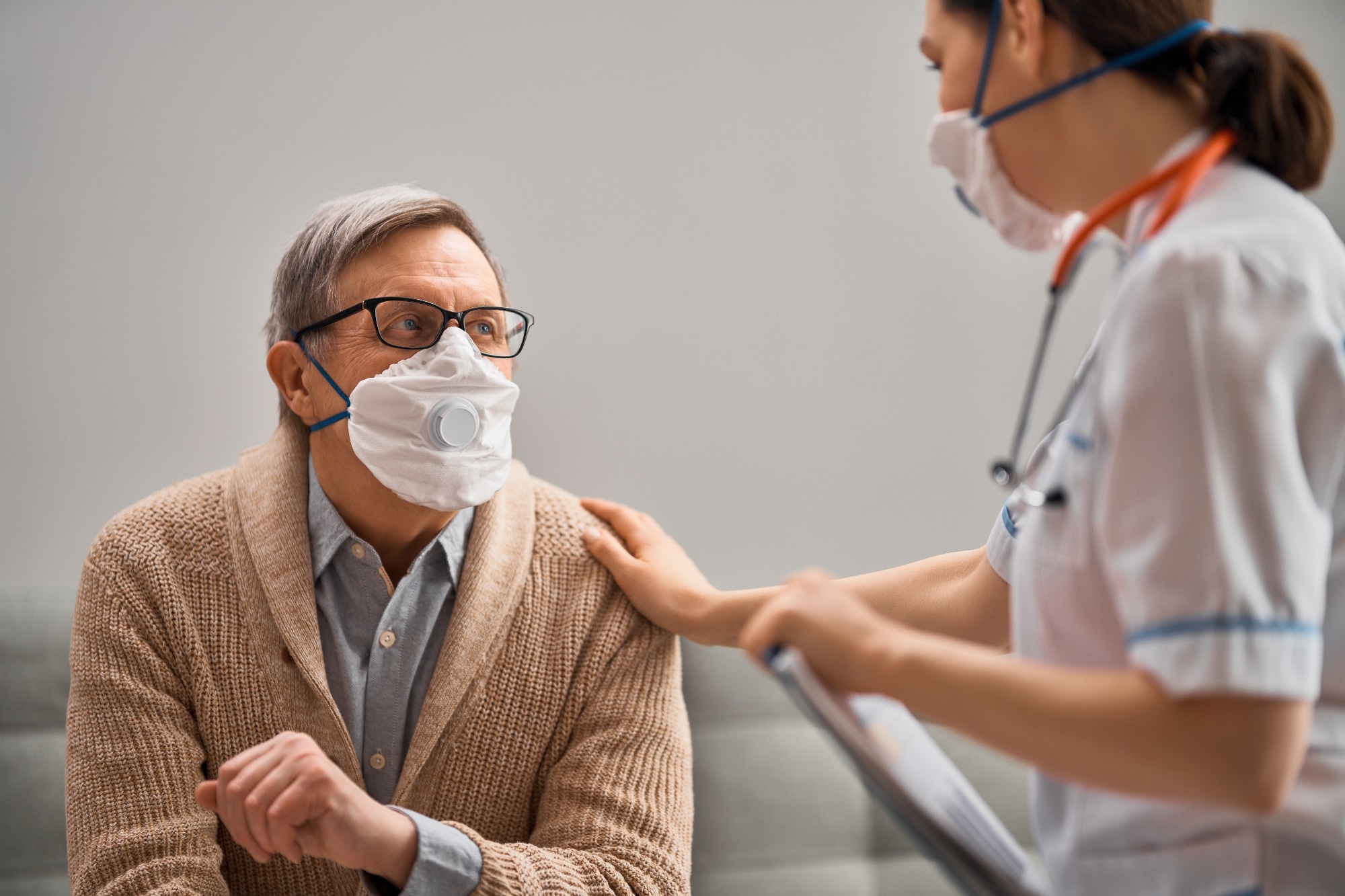The safety, efficacy, and acceptability of masks and face coverings have been among the essential and contested questions of the coronavirus disease 2019 (COVID-19) pandemic. Masks have long been used to reduce respiratory disease transmission in both endemic and epidemic conditions. However, a 2023 Cochrane review was interpreted by some to mean that masks do not work and that mask mandates had no effect. This widely publicized polarization in scientific opinion highlighted the need for a new review of masks/masking. Therefore, the present study reviewed the benefits, practicalities, and harms of masks/masking.

Masks and respirators for prevention of respiratory infections: a state of the science review. Image Credit: Yuganov Konstantin / Shutterstock
Methodological challenges
Several methodological challenges impede the design of high-quality randomized controlled trials (RCTs) of masks versus control interventions. The general criteria for the quality of complex interventions' RCTs are sampling size and strategy, setting, intervention piloting and optimization, compliance, outcome measures, adverse effects, and follow-up. These are difficult to meet in RCTs.
Further, the outcome in trials on masks is an infectious disease that can be transmitted between persons. In trials of contagious infections, unlike those of non-communicable diseases, the intervention could impact individuals other than the intended subjects by preventing onward transmission. This means that infection prevention in one person can prevent subsequent transmission chain(s).
As such, to account for this, clinical trials of respiratory protection should be cluster-randomized without between-cluster contact. Moreover, trials on masking conducted when the disease prevalence is low may falsely conclude masking to be ineffective. Furthermore, it is common for meta-analyses to erroneously aggregate dissimilar interventions, e.g., a trial of masking advised at home due to a sick family member combined with a trial of masking advised outdoors.
A new meta-analysis of RCTs
The researchers separated dissimilar interventions, settings, and outcome measures to meta-analyze published RCTs using a random effects model to address these concerns. Q and I-squared statistics were used to assess heterogeneity. The variance between studies was examined using the restricted maximum-likelihood estimator method.
The efficacy of masks was separately analyzed in healthcare and community settings. In community trials, RCTs of masks and masks plus hand hygiene were analyzed separately. Besides, data on continuous and targeted (intermittent) mask use were separately evaluated. This re-analysis of RCTs indicated a significantly lower incidence of influenza-like illness (ILI) in the mask group than in the control arm across community RCTs.
In the community trials of masks plus hand hygiene, influenza incidence was significantly lower in the masks plus hand hygiene group compared to a no-mask control arm. Among RCTs that compared N95 respirators to medical masks in the healthcare setting, ILI incidence was significantly lower in the N95 arm. The analysis of the same RCTs separately for continuous and intermittent use revealed that the continuous use of N95s was significantly protective against clinical respiratory illness.
Non-experimental evidence on mask efficacy
In the early COVID-19 pandemic, when RCTs of masks were unavailable, a systematic review and meta-analysis of observational studies reported that respirators and masks decreased infection risk by 85%. Further, in a school-based cohort study, the risk of COVID-19 among the family members of students was reduced by 30% to 40% when teachers used masks.
Case-control and cohort studies in healthcare workers provided preliminary evidence of substantial reductions in COVID-19 risk associated with continuous and consistent use of respirators. In 2020, one study found over 400 times lower odds of occupational acquisition of COVID-19 among hospital staff using N95 respirators in respiratory, intensive care, and infectious diseases departments compared to those (without continuous masking) from other departments.
Harms and adverse effects of masks
Adverse effects of masks do not necessarily imply contraindications to mask use, just as adverse effects of medicines are not necessarily contraindications. However, it is crucial to understand and address adverse effects. Adverse effects can be stratified into generic adverse effects, those in specific risk groups, those experienced by people when others around them wear masks, and harm to the environment.
Mask users commonly experience skin irritation, mechanical acne, and pressure effects. Headache is also expected and increases with protracted use. Thermal discomfort may occur, particularly among healthcare workers wearing personal protective equipment. While speculative claims of harm have been made, consistent findings across multiple studies have revealed the absence of clinically meaningful serious harm.
Concluding remarks
Taken together, the study, which reviewed evidence from different study designs and disciplines, aligns with the recent calls to shift from a 'measurement framework' that mainly/solely draws (evidence) from RCTs to an 'argument framework' involving a systematic evidence synthesis approach from multiple study designs.
The claim that masks do not work is incorrect. Since masking is effective, albeit imperfect, improving understanding among clinicians, scientists, policymakers, and people about the efficacy of masks and respirators is a pressing priority. Further, mask policies should (better) reflect the actual risks/harms rather than being influenced by speculative claims.
Research on novel materials should continue, which could lead to improved comfort and lower breathing resistance. Plastic-based medical masks, which are uncomfortable, ill-fitting, and made of non-biodegradable materials, should be phased out. Finally, the grave threat from anti-mask narratives to global health and the public should be acknowledged and addressed.